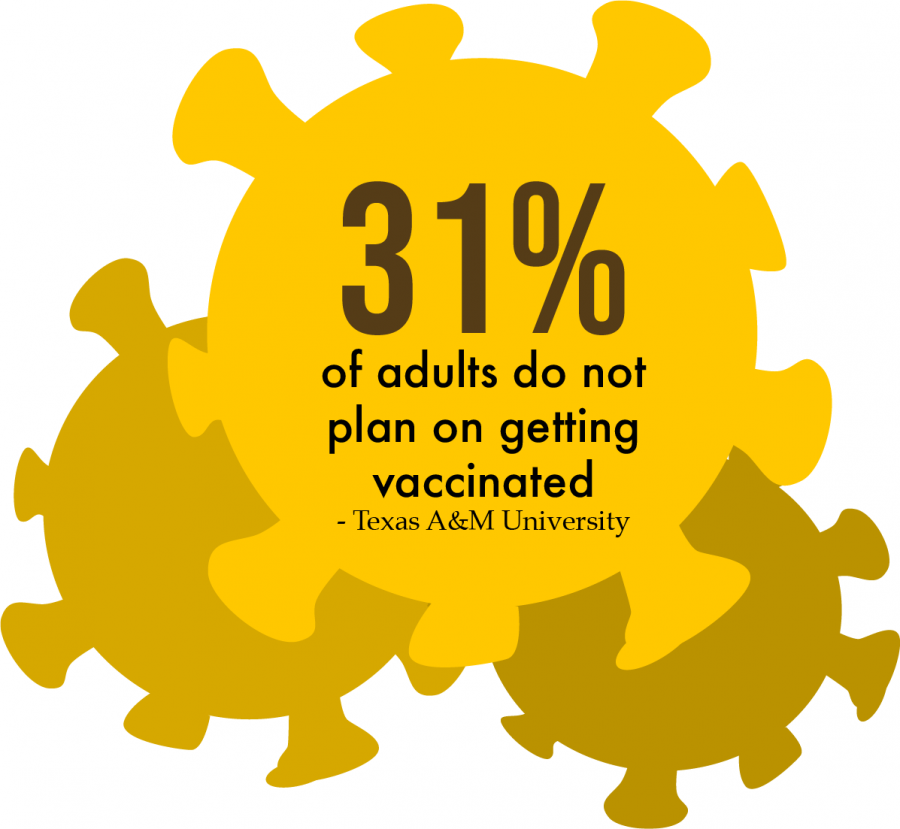Novelty and side effects of COVID-19 vaccine raises concerns and uncertainty
May 5, 2021
The novelty of the COVID-19 vaccines has prompted people to worry if they should wait or if they just shouldn’t get it at all.
According to the National Public Radio, more than half of U.S. adults have gotten at least one dose of the COVID-19 vaccine. Additionally, according to Pew Research Center, 50% of adults plan to get the vaccine and 31% of adults don’t plan on getting vaccinated.
How the vaccine changes one’s DNA and how the vaccine might have long-lasting effects are myths circulating the vaccine that caused people to be hesitant to get vaccinated.
The myth that the vaccine alters the recipient’s DNA originated from confusion surrounding the use of genetic material in the shot. This doesn’t actually happen with mRNA vaccines. Instead, the mRNA trains the body’s cells to make a particular protein to specifically fight off the COVID-19 virus, all without altering the patient’s DNA. Another worry is how quickly the vaccines became available. The Food and Drug Administration has high standards including a four phase test process that vaccines must go through before being released to the public.
Megan Ranney, MD, MPH, an emergency medicine physician and founding director of the Brown-Lifespan Center for Digital Health at Brown University whose field of research focuses on testing and developing digital health methods to prevent illnesses, said that the side effects, headache, fatigue, drowsiness, chills, nerve-loss and arm pain, that come with the vaccine are expected.
“These side effects show that your immune system is mounting a response,” Ranney said, “they are to be expected, and they are not dangerous.”
Another common concern is that the vaccine is not effective because of how the virus mutates. Although it is true that mutations have formed, getting the vaccine will still protect the vaccinated person from the original strains and the variant first detected in the United Kingdom. A variant already discovered, the South African variant, has already shown resistance to the vaccines. Although not created yet, booster shots might be necessary to protect against the new variants.
Moreover, according to Alessandro Sette PhD, an immunologist at La Jolla Institute for Immunology, in San Diego, California, the T cells recognized are not changed in the variants of the virus. This means that if a vaccinated body caught a different variant of the virus, the T cell response would not prevent infection but will lower disease severity.
Sophomore Katherine Manatos of Wall has concerns about the vaccine but still wants to get vaccinated. “There’s also side effects that can happen in the future that they don’t know of yet but I also feel the same way about COVID.”
Biology and Forensics teacher Leah Morgan did not hesitate to get vaccinated. “I wasn’t hesitant at all to get the vaccine,” Morgan said, “…it is very safe and will be effective in controlling the pandemic.”
She also believes that everyone should be vaccinated.
“Only through the vaccination of the majority of the population will the country return to normal,” Morgan said.





